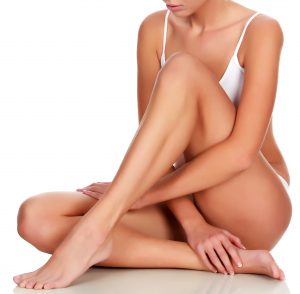Eczema Vs. Psoriasis
Table of Contents
Eczema and psoriasis are two different skin conditions that cause similar redness, itching, and inflammation in sufferers. They both affect the same area of the body, but they differ in their causes and symptoms. Read on to learn more about these common skin conditions.
Due to their common symptoms, the two conditions are often conflated; however, they are distinct in appearance, how they are experienced by individuals, and their causes.
What Is Eczema?
Eczema is a common but manageable skin disease. Common types include atopic dermatitis, contact dermatitis, and stasis dermatitis. There is some evidence that certain types of eczema may be driven by the immune system but more research is needed to understand this.
Eczema symptoms include dry, itchy, swollen skin. In the case of atopic dermatitis, scratching the itch causes an itchy rash to appear. People can develop eczema at any age, though it is most commonly found in children.
An eczema flare up can be triggered by environmental factors, such as weather, humidity, dust, pets, pollen, mold, dandruff, etc. Other triggers include harsh soaps, detergents, disinfectants, juices from produce or meats or dry skin in adults. Infections (especially skin infections), stress, and hormonal changes can also cause eczema. However, this does not mean that if you are exposed to such conditions, you will get eczema.
What Is Psoriasis?
Psoriasis is a chronic auto-immune disease. This means the immune system response is triggered (even though the sufferer isn’t sick) and begins attacking the body’s skin cells. This causes skin cells to turn over more quickly than normal, creating scaly patches on the skin where the cells have piled up.
Psoriasis may appear more silver or white in some areas. It is most common in patients between the ages of 15 and 35. It entails thicker scales and a deeper burning sensation. Psoriasis also shares some of the previously mentioned triggers, such as stress and infection. Some other factors that can cause psoriasis to flare up the skin include sunburn and scratches.
Psoriasis may be linked to other serious health conditions, such as diabetes, heart disease or depression. It is important to note that our experienced providers in Medina will be able to diagnose psoriasis and provide relief if you are dealing with such symptoms.
Which Areas Are Affected By Eczema And Psoriasis?*
Eczema and psoriasis can appear in different parts of the body. However, some areas are more susceptible to these conditions.
For example, Eczema often shows up on:
- Neck
- Inner elbow
- Back of the knees
- Ankles and wrists
- Cheeks, back, lower legs, arms or scalp in babies
Psoriasis is more likely to occur on:
- Palms
- Foot soles
- Elbows
- Knees
- Scalp
- Face
- Lower back
- Tops of fingers, mouth, lips, eyelids and ears
- Fingernails and toenails.
How Is Eczema Treated? *
If you are dealing with any type of eczema, it is important that you maintain a healthy lifestyle. You should eat a healthy diet, drink more water and get plenty of exercise.
Typically, eczema treatments begin with a topical corticosteroid cream. If an infection has occurred, then antibiotic creams or prescription oral medication may be given. Additionally, there are barrier creams that may be useful to protect skin from irritations and infections allowing the skin to heal. Some of the specific medications that we prescribe are Protopic and Elidel. This will target the immune system. Dupixent, on the other hand, is an injectable antibiotic prescribed for more severe cases.
How Is Psoriasis Treated? *
Just like eczema, psoriasis treatment often starts with topical corticosteroid creams . Generally, we recommend taking cold showers and then applying creams that soften the skin. You could be prescribed vitamin D supplements in addition to the creams to further relieve psoriasis symptoms. Some of the prescribed medications, depending on the patient, could be oral, injectable or intravenous; however, these are usually the final steps in most treatment plans. Additionally, light therapy, or light laser therapy, may be a part of your individualized treatment plan, though it’s important to note that this treatment may make symptoms worse before making them better.
*Please note that each medication prescribed may have side effects and the results vary based on the individual.

Schedule An Appointment!
If you are suffering from eczema or psoriasis, you are not alone. Understanding the differences between eczema and psoriasis can help you recognize the condition and seek help. Ensure a clear diagnosis and explore treatment options by calling us today to schedule an appointment. We’ll develop a treatment plan just for you in order to relieve the symptoms of eczema or psoriasis and improve your look and confidence.
Disclaimer: Results for each patient will vary. Please remember that the information provided will not guarantee your eligibility for treatment. Consultation and medical examination must be completed before approval.

